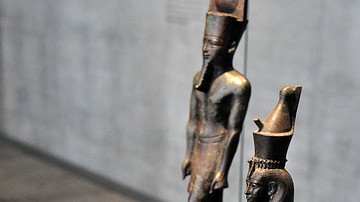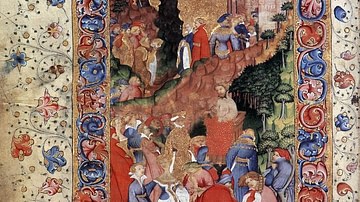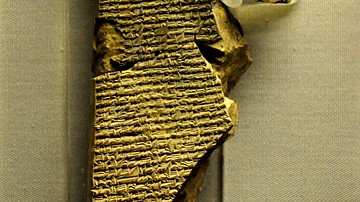Review

| Rating: | |
|---|---|
| Title: | Delivered Under Fire: Absalom Markland and Freedom's Mail |
| Author: | Candice Shy Hooper |
| Audience: | University |
| Difficulty: | Medium |
| Publisher: | Potomac Books Inc |
| Published: | 2023 |
| Pages: | 352 |
Candice Shy Hooper's "Delivered Under Fire: Absalom Markland and Freedom's Mail" reframes the history of the American Civil War by highlighting both the U.S. mail service and the individuals facilitating its success. This book is approachable for both university-level and public history readers.
In today’s world of instantaneous text messages, emails, and video calls, it is easy to take reliable communication for granted. These technologies have not only transformed personal correspondence but the social, economic, and political networks in which we live. Candice Shy Hooper’s Delivered Under Fire: Absalom Markland and Freedom’s Mail highlights an essential institution during the American Civil War – the U. S. military mail service. As a special agent, civilian postal official, and military informant, Absalom Markland developed crucial systems to collect, inspect, and distribute mails that transformed the American postal system.
Delivered Under Fire sheds light on Markland’s remarkable life and the centrality of individuals that connected the home front and the battlefield. Part military history and part biography, this book suits both university and public history audiences. By placing Markland and the developing mail service at the center of her narrative, Hooper reframes the history of the American Civil War.
Markland’s position placed him at the intersection of the civilian and military worlds during the Civil War. As a youth in Kentucky, he attended school with Ulysses S. Grant, a friendship that would shape the remainder of Markland’s life. Described by Hooper as a "self-made man," he worked for a time as a teacher, a freight clerk, and a lawyer (2). In 1861, Postmaster General Montgomery Blair (1813-1883) appointed Markland as a special agent of the US Post Office, tasking him to investigate fraud, mail theft, and official misconduct. Before long, his responsibilities expanded to include establishing effective mail services to mobile Union troops without betraying them to the enemy.
Markland not only facilitated the distribution of mail but attended regular meetings with Abraham Lincoln and carried military intelligence to Union generals on the front lines. Often as the first civilian to enter the occupied territories and cross army lines, his work earned him the honorary title of "Colonel." In the post-war period, Markland’s role as Assistant Postmaster General thrust him into the center of the Ku Klux Klan trials of 1871. At the end of his life, although plagued with hearing loss, Markland embarked on a second career as a writer, as well as serving as a political insider and person of honor within veteran organizations.
Furthermore, Delivered Under Fire demonstrates the significance of the United States military mail service as a community institution, apparatus of war, instrument of espionage, and mechanism for improving morale. Reliable access to partisan newspapers, personal correspondence, and military intelligence shifted the fortunes of the Union war effort. In contrast, the absence of a parallel system in the South crippled the Confederacy and led to several attempts to intercept enemy communications. Hooper also speaks to the legacy of Markland’s work. His proposed money order system combatted financial fraud and served as the foundation for modern-day services. The development of the mail service transformed urban spaces and impacted international communications.
Hooper has served on the editorial advisory board of The Journal of Military History and is a member of the Ulysses S. and Julia D. Grant Historical Home Advisory Board. Through using a variety of primary sources and archival documents, Delivered Under Fire urges historians to consider those who stewarded the wartime correspondence that is of the utmost importance to current scholarship on the Civil War. Hooper also integrates photos or maps printed in 19th-century newspapers to allow readers to understand the history visually. This book also dissolves the line between military and civilian operations during the American Civil War. Delivered Under Fire, while centering on the mail service’s relationship with the military, also raises questions about its impact on home-front volunteer organizations, such as the United States Sanitary Commission and the United States Christian Commission. These organizations, driven primarily by the patriotic labors of women in the North, worked in tandem with the U. S. Post Office during the war. Hooper’s work, thus, offers intriguing directions for future research.
Cite This Work
APA Style
Angelica, K. (2023, May 31). Delivered Under Fire: Absalom Markland and Freedom's Mail. World History Encyclopedia. Retrieved from https://www.worldhistory.org/review/358/delivered-under-fire-absalom-markland-and-freedoms/
Chicago Style
Angelica, Kathryn. "Delivered Under Fire: Absalom Markland and Freedom's Mail." World History Encyclopedia. Last modified May 31, 2023. https://www.worldhistory.org/review/358/delivered-under-fire-absalom-markland-and-freedoms/.
MLA Style
Angelica, Kathryn. "Delivered Under Fire: Absalom Markland and Freedom's Mail." World History Encyclopedia. World History Encyclopedia, 31 May 2023, https://www.worldhistory.org/review/358/delivered-under-fire-absalom-markland-and-freedoms/. Web. 26 Apr 2025.




